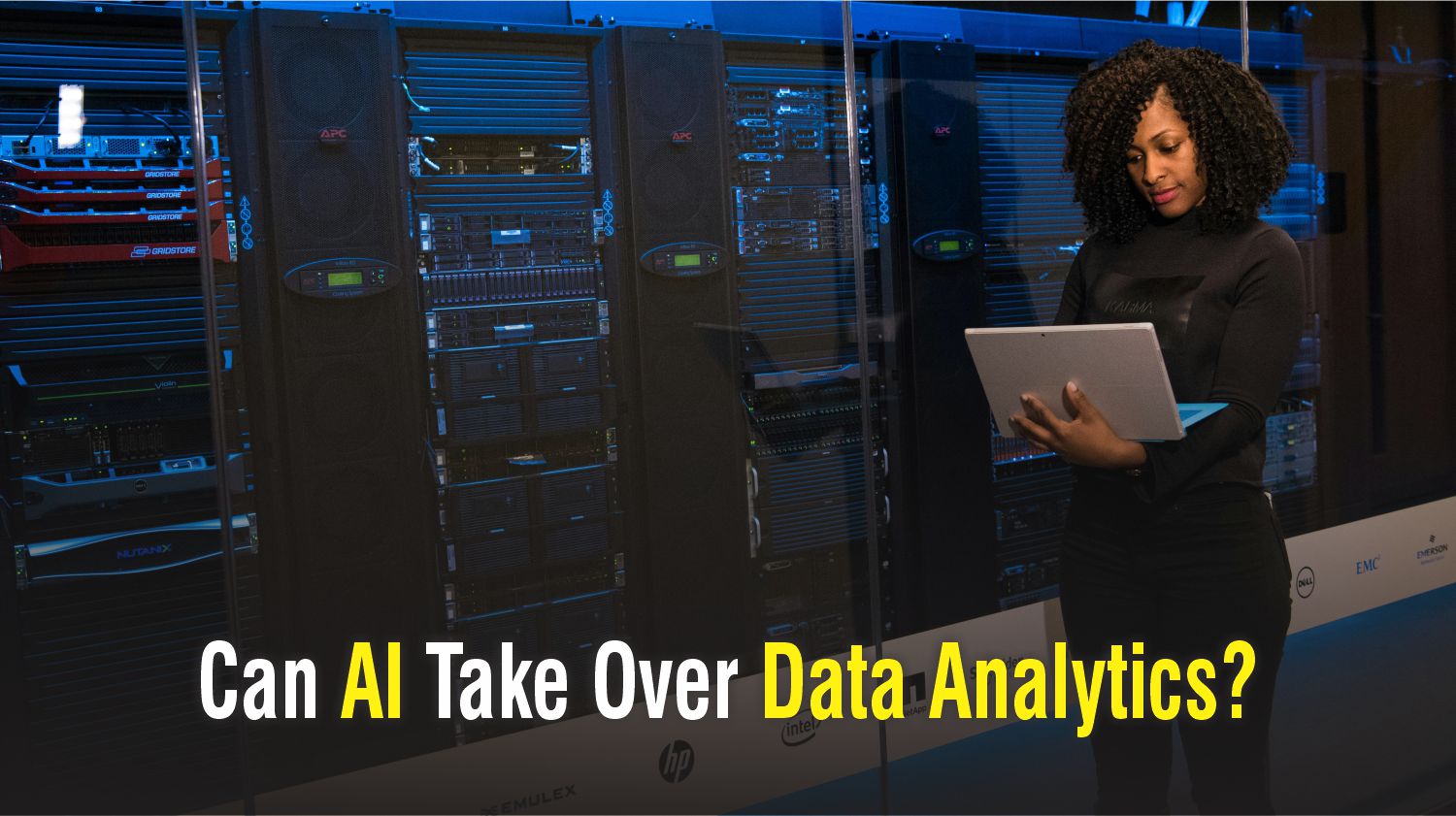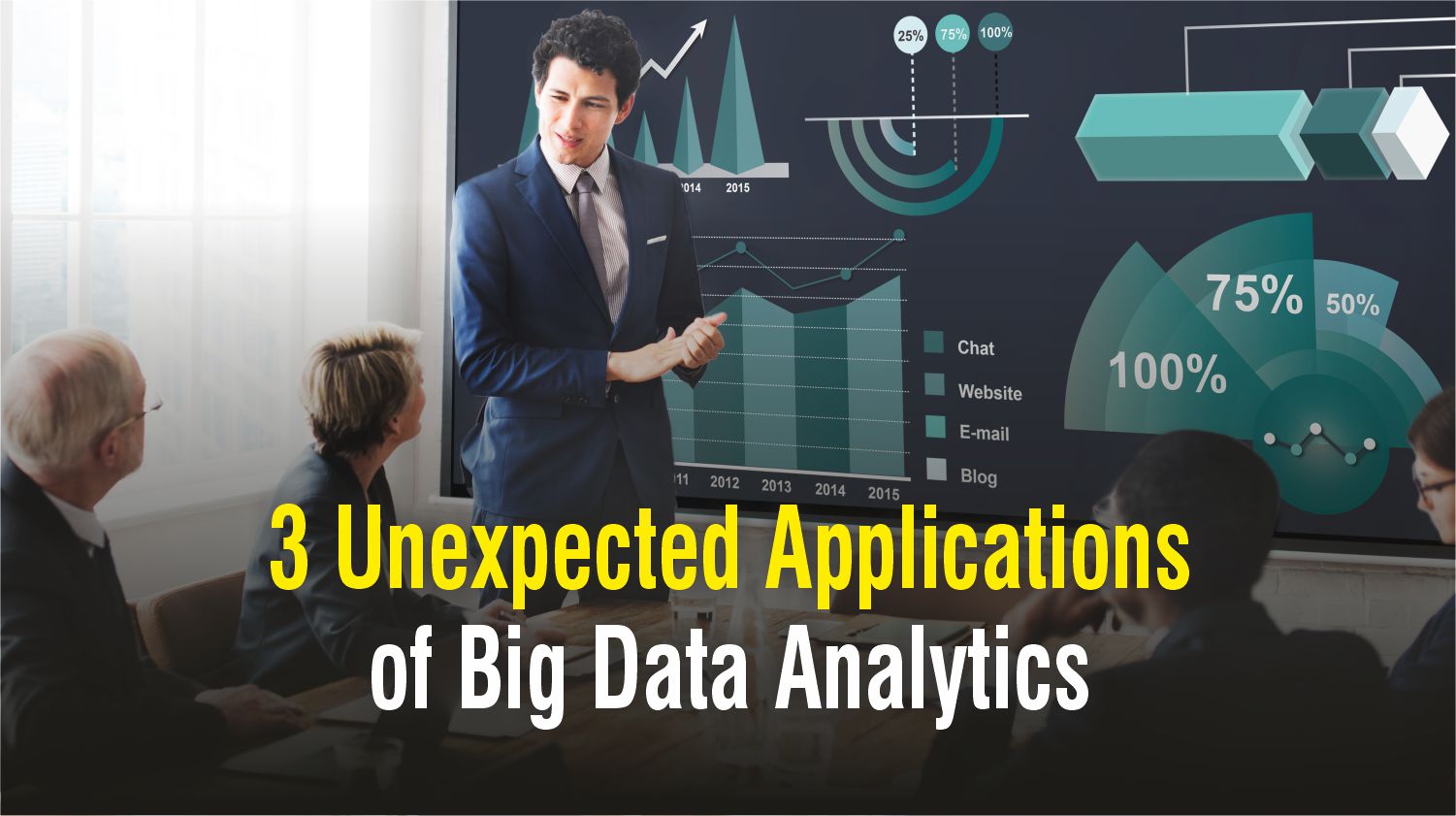One concern that often comes up in the ever-expanding world of technology is whether data analytics will be overtaken by artificial intelligence (AI). The merging of artificial intelligence and data analytics has created new opportunities for studying and using massive data. By offering deeper insights, predictive analytics, and automated decision-making processes, this combination holds the potential to completely transform several industries. Let's examine this complex relationship and what data analytics will look like in the AI era.
Data Analytics and AI
Data analytics is the process of searching through information systems to find significant data. Artificial Intelligence has revolutionized this process, which was formerly laborious and manual. AI improves data analytics by processing and analyzing massive amounts of data quickly, which increases accuracy and efficiency.
Machine learning (ML), a subfield of AI, is especially important for data analytics. With little assistance from humans, machine learning algorithms can recognize patterns in data, learn from them, and make judgments. This skill is essential to predictive analytics, which forecasts future trends and results by analyzing historical data.
The development of AI in data analytics has been accelerated by the Big Data era. Older data analytics techniques are unable to keep up with the exponential rise of data coming from social media feeds, IoT (Internet of Things) devices, and other sources. In these settings, AI and ML flourish, sorting through intricate, unstructured data sets to produce insights that are impossible for people to find on their own.
Enhanced Decision-Making Prescriptive Analytics, which offers suggestions and solutions, is provided by AI-driven analytics tools that go beyond basic data interpretation. This is a critical component in industries where data drives strategic decision-making, such as marketing, finance, and healthcare.
The Human Aspect of Analytics
Even with AI's achievements, humans are still indispensable. AI fails in several domains; context, nuance understanding, and ethical considerations are frequently necessary for data interpretation. Despite their strength, AI systems are only as good as the data they are fed. Abnormal conclusions can result from biased or faulty data. For AI-generated analytics to be guided, interpreted, and judged, human oversight is necessary.
Sensitive information is included in data analytics. Priority should be given to ethical issues like data security and privacy. This is an area where human intervention is critical, and AI systems must be designed to respect these concerns.
AI's Role in Data Analytics Future
AI's significance in data analytics is growing as it develops further. With AI integration, data analytics appears to have a bright future ahead of it, enabling more sophisticated, effective, and precise analysis.
AI development will improve predictive and prescriptive analytics skills, resulting in more precise forecasting and strategic planning for a variety of businesses. Real-Time Analytics AI makes it possible to process and analyze data in real-time, giving organizations instant insights and enabling them to respond quickly to changes in the market. AI-driven data analytics enables a higher level of personalization in the marketing and retail industries, enhancing consumer engagement and experiences.
Obstacles and Limitations
However, there are difficulties in incorporating AI into data analytics. As AI systems handle data more intelligently, there is increasing worry about how to keep this data secure and private. Moreover, the issue of striking a balance between AI automation and human employment also exists. The workforce needs to be retrained and reskilled as AI takes on more analytical jobs.
Developing Responsible AI: A Case Study
Finally, there is a strong need to have a responsible AI that is transparent, ethical, and fair. One of the best examples of responsible AI in action is Google's AI for Social Good initiative, which focuses on applying AI technologies in an ethical, transparent, and helpful way to address global concerns. This project demonstrates Google's dedication to bringing AI into daily life to solve important problems like healthcare and environmental preservation.
Project Jigsaw is one of the main projects within this initiative, and its goal is to stop online abuse. To establish a safer online environment, this project uses artificial intelligence (AI) to detect and filter toxic language on the internet and discriminate between harmful and neutral information. This AI model's unique ability to understand linguistic quirks guarantees impartial and accurate screening.
The application of AI to wildlife conservation (Wildlife Insights) is another important undertaking. Here, Google's AI recognizes and classifies animal species by analyzing vast amounts of data from video traps in wildlife reserves. This highlights the potential of AI in environmental protection by supporting biodiversity research and anti-poaching initiatives.
Furthermore, Google's AI development places a high priority on data security and privacy. The organization complies with international data privacy laws and uses strong security measures to safeguard sensitive and personal information.
To sum up, Google's AI for Social Good project offers a blueprint for ethical AI research and use. By placing a high value on ethical standards, transparency, fairness, data privacy, and positive social effects, Google demonstrates how AI can be a powerful force for good that improves both the community and individual well-being.
This case study highlights how AI may greatly help society while respecting moral and ethical standards, and it serves as an example for other AI developers.
In Summary
Data Analytics Essentials is a stepping-stone towards building a career as a data analyst.
In a nutshell, while AI greatly improves data analytics, it is not about to take over soon and harm society. In order to provide context, exercise ethical supervision, and make strategic decisions, the human element is still essential. The future of data analytics is collaborative methods that combine human insight and judgment with AI's speed and efficiency. The goal should be to maximize the benefits of both AI and data analytics as we move through this fascinating era, laying the groundwork for a future that is both ethically and data driven.
Vibrant’s new book Data Analytics Essentials You Always Wanted To Know is specially designed to serve as a stepping-stone for the future generation of data analysts. It can be used by professionals, career-switchers as well as students to build a strong foundation in data analytics. This book is a part of Vibrant Publishers’ Self-Learning Management Series.
Dr. Bianca Szasz, author of Data Analytics Essentials You Always Wanted To Know
This blog is written by Dr. Bianca Szasz, author of the book, ‘Data Analytics Essentials You Always Wanted To Know’ by Vibrant Publishers.
Also read: 3 Unexpected Applications of Big Data Analytics What Role does Data Analytics play in Decision-Making? Introduction to Data Structures











